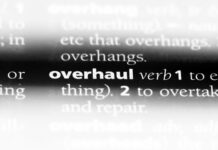Protest challenging exclusion of protester’s proposal is dismissed for failure to state claim. The agency excluded the proposal because the protester failed to provide a rationale for its profit rate as required by the solicitation. The protester argued that its failure to submit the rationale was a mere clerical error and that the agency abused its discretion in rejecting the proposal. But the court found that the failure to provide the profit rationale was a material error that rendered the protester’s proposal ineligible. The protester also claimed that the requirement to provide a profit rationale violated the FAR. The court, however, found that this was an untimely challenge to the terms of the solicitation.
The General Services Administration issued a solicitation seeking to add new contractors to its existing One Acquisition Solution for Integrated Services (OASIS) contracts. The OASIS contracts are multiple award IDIQ contracts. GSA maintains several OASIS pools. Each pool provides a range of professional services from a variety of contractors.
The solicitation stated that offerors should propose a profit rate that does not exceed 7%. If a proposed profit rate exceeded 7%, then the offeror had to provide a clear and convincing rationale for its rate. Failure to provide that rationale would result in a determination that the offeror’s price was not fair and reasonable and that the offeror was not eligible for award.
Digiflight, Inc. submitted a proposal with a 9% profit rate. GSA sent a letter to Digiflight stating that the government was unable to find any rationale for the 9% rate. The letter requested that Digiflight identify a rationale in the proposal for the profit rate. The letter stated that the communication was for clarification purposes only, and that the Digiflight was not being provided with an opportunity to revise its proposal.
But Digiflight’s proposal did not contain a rationale. Thus, in response to the letter Digiflight provided GSA with a rationale for its profit rate. GSA, however, found that Digiflight’s failure to include the rationale for in its proposal rendered the company ineligible for award.
Digiflight filed a protest with the Court of Federal Claims asserting three counts: (1) GSA breached its duty to seek verification of Digiflight’s clerical error of not providing the profit rationale; (2) GSA abused its discretion in refusing to consider the profit rationale Digiflight subsequently provided; and (3) GSA could not provide a coherent explanation for its decision to not consider Digiflight’s proposal. The government moved for judgment on the pleadings arguing that Digiflight’s complaint failed to state a claim.
The court found the government’s motion persuasive. As an initial matter, the court found that counts 1 and 2 of Digiflight’s complaint were based on an erroneous premise—namely, that the failure to include the rational was a mere clerical error. The court, however, found that the failure to include the rationale was a material error.
A solicitation requirement is a material requirement if it (1) is express in the solicitation, and (2) serves a substantive purpose. The requirement to provide a profit rationale satisfied both requirements. First, the solicitation expressly identified the requirement in all capital letters and clearly warned offerors that failure to provide the rationale would result in an ineligibility determination. The court also found that the requirement served a substantive purposes. The solicitation required the profit rationale so that GSA could determine whether the offeror’s price was fair and reasonable.
Indeed, taking the analysis one step further, the court found that the profit rationale requirement constituted a mandatory minimum requirement. The solicitation expressly warned that failure to provide the rationale would lead to an outright rejection of the proposal. The solicitation did not mince words; it clearly put offerors on notice that of the requirement and the consequences of not complying with it.
Because the failure to provide the profit rationale was not a clerical error, counts 1 and 2 of the complaint, which presumed the failure was a clerical error, were untenable. As noted, in count 1, Digiflight alleged GSA breached a duty to verify Digiflight’s clerical error. But the failure was a material error, and agencies do not have a duty to permit correction of a material error. Likewise, count 2 alleged that GSA abused its discretions in not considering the rationale Digiflight provided to correct the clerical error. But again, the failure was a material error, and the solicitation did not allow GSA the discretion to permit offerors to correct a material error.
The court also found that count 3 of the complaint failed to state a claim. In that count, Digiflight alleged that the government could not provide a reasonable explanation for excluding Digiflight’s proposal because the FAR provides that offerors are not required to submit supporting rationale for their profit rates.
The court noted that the FAR did appear to mandate that contracting officers not require contractors to submit supporting rationale for profit, and the court did not necessarily understand why the solicitation included the requirement. Nevertheless, the solicitation did include the requirement, and Digiflight was clearly aware of it. If Digiflight believed this requirement was contrary to the FAR, it should have filed a protest challenging the terms of the solicitation before the proposal deadline. Its complaints now were untimely.
Digiflight is represented by Richard Joe Rupert Raleigh, Jr. of Wilmer & Lee, P.A. The government is represented by Sean Lynden Kind, Ethan P. Davis, Robert E. Kirschman, Jr, and Douglas K. Mickle of the Department of Justice.





